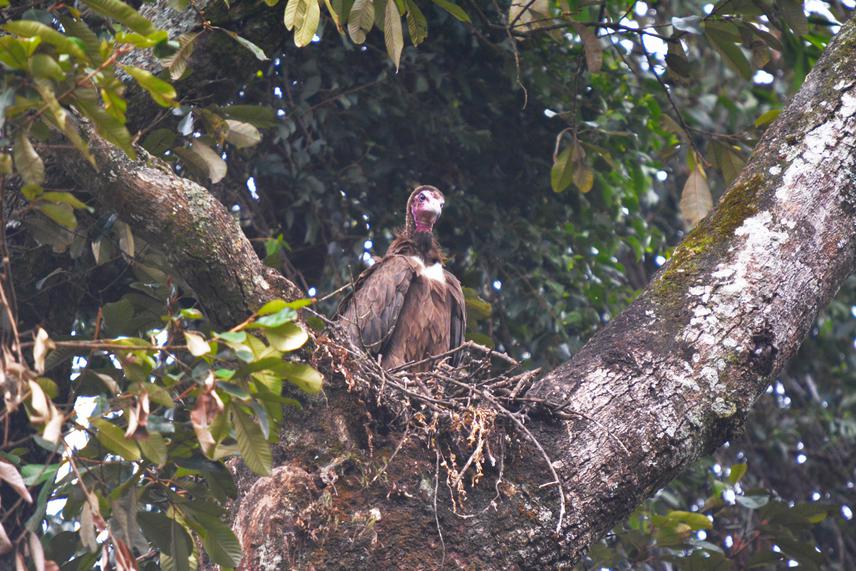Prudence Ndabasanze
Other projects
18 Mar 2021
Community-Based Ecological Monitoring of Critically Endangered Hooded Vulture in Rwanda
Hooded vulture is one of the six vulture species found in Rwanda that is Critically Endangered and globally decreasing (BirdLife International, 2015). Their decline has been projected at 83% (range 64–93%) over the last three generations (Ogada et al., 2016). In 2021, the Rufford Foundation has supported our project to establish a community partnership to promote Hooded Vulture monitoring as a mean to improve its conservation and management in Rwanda. Among the 15 sites that were monitored for a period of 10 months, only Busaga forest was identified as a breeding and nesting site for Hooded vultures. However, Busaga forest is threatened by human activities such as agriculture encroachment, firewood and medicinal plants collection, tree cutting, clay extraction in the buffer zone, honey collection, invasive species, among others (REMA 2018).

One of the Active nests identified in Busaga Forest - Nature Rwanda.
The goal of this project is to provide a safe nesting and breeding habitat to Hooded vultures in order to restore its population to a favourable level. The specific objectives of this project are: 1) to minimize human induced threats to Busaga forest, and 2) to gather evidence that can be used to influence the promotion of Busaga forest to an Important Bird Area or Key Biodiversity Area.
The results from the biodiversity assessment will be used as a tool for planning, advocacy, and decision-making for the protection and conservation of Busaga forest and its biodiversity. We anticipate that the daily forest monitoring and bi-monthly nest monitoring will guarantee the safety of breeding sites and considerably reduce breeding failures. Moreover, data gathered through this project will be used as baseline for future research and conservation initiatives and will be included into the Rwanda Biodiversity Information System (RBIS), GBIF, e-bird and the BirdLife data zone to allow access to data to key stakeholders. With the updated information, an application for listing Busaga as a new Important Bird Area/Key Biodiversity Area and new ecotourist destination will be developed, and the data on threats will provide advocacy material and information for designing interventions.